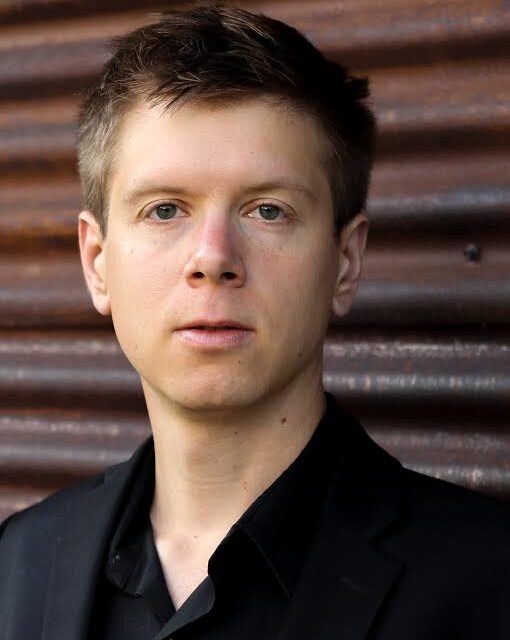This preview has been provided by The Chamber Orchestra of the Triangle.
On Sunday, May 7 at 3 pm The Chamber Orchestra of the Triangle joined by the Concert Singers of Cary and four brilliant young soloists will perform Verdi’s elegant Stabat Mater and Rossini’s sharply contrasting, magnificent and demanding Stabat Mater. The orchestra, hundred voice chorus and soloists will be conducted by Artistic Director Lorenzo Muti. Both pieces portray the operatic underpinnings of each composer–titans of 19th century Italian opera. Muti notes that the highly charged 13th century poetry of Stabat Mater lent itself perfectly to the talents of these two great composers. It is the story of Christ’s crucifixion told through the pain of His mother’s heart.
The demands on soloists in the Rossini are extraordinary. The four soloists are in advanced graduate programs at The Juilliard School and performing regularly on the opera stages of the world. Joseph Polumbo, Chorus Master of The Metropolitan Opera, is coaching them for this program. Mezzo soprano Samantha Hankey has just won The Metropolitan Opera’s National Council’s Grand Finals and the Leonore Annenberg Fellowship, all in a few weeks in April. Soprano Felicia Moore has multiple degrees in voice and has been heard across America in important regional houses from San Francisco to Chicago to St. Louis as well as at Carnegie Hall. English trained tenor Gerard Schneider’s graduate work at The Juilliard School is made possible by having won The Alice Tully Scholarship, the Hardesty and Beverly Peck Johnson Fund and the Tamara and Richard Patrick Calvert Memorial Scholarship. From Verdi’s Requiem to Osaka in Mascagni’s Iris to the title role in Mozart’s Idomineo at the Kilkenny Arts Festival, Schneider has been met with critical acclaim. And the bass, Andrew Munn, has a young and exciting career spanning canonical, operatic, concert and chamber work. 2016 saw him graduate from the Bard Graduate Vocal Arts Program under Dawn Upshaw and move to Juilliard to study with Sanford Sylvan. A few recent performance highlights include Rocco and Second Prisoner in Beethoven’s Fidelio, Il Pastore in Rossini’s Aureliano in Palmira at Caramoor as well as the bass solos in Handel’s Messiah with The Orchestra Now.
The regional choral jewel, the Concert Singers of Cary, are continuing an association of many years with The Chamber Orchestra of the Triangle, performances that have met with great critical acclaim and received frequent support from the North Carolina Arts Council, The Kenan Foundation, The Mary Duke Biddle Foundation and other major arts funds.
Verdi’s setting of the Stabat Mater was his last complete work, having abandoned opera after the huge success of Falstaff in 1893 and returned to his roots in sacred composition. The title comes from its first line, “Stabat mater dolorosa,” which means “the sorrowful mother was standing.” With deeply affecting lyrics, this hymn has been arranged by numerous composers throughout the history of Western art music, from Palestrina in 1590 to Rossini in 1842 to Pärt in 1985. What sets Verdi’s Stabat Mater apart is the economy with which its text and music are handled. Verdi’s text moves along without reiterating a single word, while the music is through-composed, having no sectional repetitions. Despite being the shortest version of Stabat Mater of the nineteenth century, the work displays highly complex structure and texture, with a blend of rich chromatic passages, aria-like melodies, a cappella sections, and dramatic outbursts.
If economy is the beauty of Verdi (1813-1901), complexity is the hallmark of the Rossini (1792-1868) as he treats the text in a typically “operatic” style, but that is not to say it is irreligious. In the 18th, and even 19th, centuries, opera (and spectacle in general) was banned during Lent, and many composers focused their powers on religious genres like oratorio and cantata; though the texts are sacred, the music was frequently indistinguishable from secular music. Each of the four soloists receives a solo movement; the tenor’s “Cuius animam” remains a recital favorite as a display of the singer’s technique and range. The unaccompanied sections, like “Quando corpus,” display Rossini’s mastery of part-writing and his ability to invoke older styles, informed with 19th-century chromaticism.
Verdi’s composition speaks to a long life of constant work while Rossini composed his Stabat Mater at the height of his operatic period, retiring as a wealthy, indolent 40 year old. The contrasts are rich, stark and intriguing.
WHEN: Sunday, May 7, 3pm
WHERE:
Carolina Theatre of Durham
309 W. Morgan St.
Durham, NC 27701
TICKETS:
Box Office 919-560-3030
$30.00. ALL students free.
Tickets available in advance or at the door











